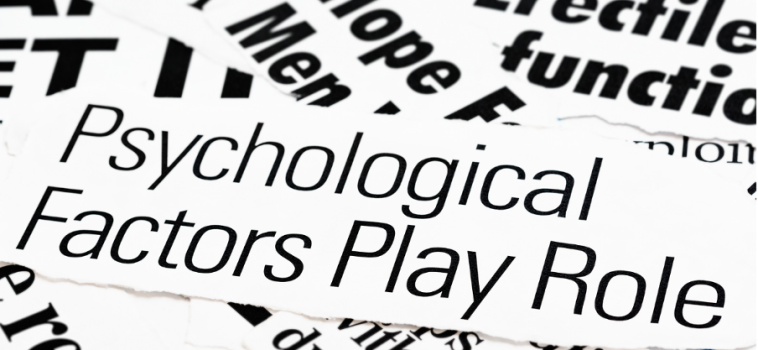What is Erectile Dysfunction or Erectile Difficulty?
Erectile Dysfunction (ED) is the inability to obtain or sustain an erection sufficient enough for penetrative sex. The loss of erection during sex is a very common condition among men, and many reports having experienced it at some stage in their life. However, ED only refers to a condition when you experience erectile difficulty in the majority of your sexual encounters. In addition, erectile dysfunction refers to times you want to have sex and feel psychologically aroused but are unable to obtain or sustain your erection.
Potential causes of Erectile Dysfunction
Sometimes partners of men who experience ED feel hurt and believe that a lack of sexual attraction in the relationship causes ED. So let’s discuss the causes of ED so you and your partner can have a better understanding of what might have led to you experiencing erectile difficulty. Remember, to get an accurate diagnosis, your first point of contact is your healthcare provider; they will do a thorough assessment and rule out any medical and physical reasons underlying your ED.
Some of the medical and physical conditions causing erectile problems include;
- Cardiovascular conditions
- High cholesterol
- high blood pressure
- Diabetes
- Neurological conditions
- Hormonal irregularities
- Side effects of some medications (such as antidepressants and cancer treatment medications)
- Peyronie’s disease (a condition that causes the penis to bend or curve)
- Harm or trauma to the penile
- Lifestyle choices, such as smoking and drinking
When your healthcare provider rules out or addresses the medical and physical causes of ED, but you are still experiencing erectile problems, it is time to assess for psychological reasons.
Some of the psychological reasons contributing to the development of erectile difficulty include:
- Stress\sAnxiety
- Depression
- Relationship difficulties
- Performance phobia or anxiety
- Trauma, including sexual trauma
- Body image issues
Management and Treatment of Erectile Difficulty
The cause of ED determines the treatment plan. Sometimes, it might be as simple as addressing the medical reasons behind ED. Other times, treatment plans might include lifestyle adjustments, stress management, couple counselling or sex therapy.
PDE5 inhibitors: include sildenafil (Viagra), tadalafil (Cialis), and vardenafil (Levitra). These drugs help to create and sustain an erection by boosting blood flow to the penis. However, this might lead to lifelong use of these medications because they do not address the psychological and relational causes of ED.
Hormone therapy: Low Testosterone can also cause ED. The improvement of erectile function and a rise in sexual desire can both be achieved with testosterone replacement treatment.
Vacuum erection devices: In this procedure, an erection is produced using a vacuum pump. An erection is produced by inserting the penis inside a plastic cylinder and using a pump to generate a vacuum, which induces blood to flow into the penis.
Penile injections: In this procedure, a drug is directly injected into the penis to cause an erection.
Surgery: Surgery might be performed to insert a penile implant or repair blood vessels.
Psychological counselling: Erectile dysfunction (ED) may also result from psychological conditions such as stress, worry, or depression. You can address underlying reasons and enhance your sexual function by speaking with a therapist or counsellor.
Although many of these therapeutic approaches have been successful, it’s crucial to remember that not everyone will benefit from them.
Your first step is to speak to your healthcare provider to decide on the best course of action for you. If your doctor has already assessed you and the causes of ED are psychological, please feel free to contact me for treatment. As a qualified sex therapist, I am aware of the challenges and adverse effects ED may have on a person’s quality of life. I’m here to help you on your path to improved sexual health.
I wish you all the best.




